
ISME Communications
metrics 2024
Fostering Collaboration in Environmental Science Research
Introduction
ISME Communications is an esteemed journal dedicated to advancing the field of environmental microbiology and its multifaceted intersections with ecology, biogeochemistry, and biotechnology. Published by SpringerNature, this journal aims to disseminate cutting-edge research and innovative insights that address pressing global challenges through interdisciplinary approaches. With a commitment to open access, it provides a platform for researchers, professionals, and students to share their findings widely, fostering collaboration and knowledge exchange. Although the journal is relatively new, its potential for impactful contributions is substantial, making it an essential resource for anyone interested in the microbial processes that underpin ecosystem functioning and sustainability. The journal not only prioritizes the rigorous peer-review process but also supports the academic community's pursuit of excellence in environmental science.
Metrics 2024
 -
- 5.10
5.10 5.10
5.10 -
-Metrics History
Rank 2024
IF (Web Of Science)
JCI (Web Of Science)
Quartile History
Similar Journals

Soil Ecology Letters
Unlocking the Secrets of Soil EcosystemsSoil Ecology Letters, published by SpringerNature, is a premier journal dedicated to advancing the knowledge and understanding of soil ecosystems, their functions, and their vital role in global sustainability. Since its inception in 2019, this leading journal has consistently maintained its prestigious Q1 ranking in Ecology, Evolution, Behavior and Systematics, as well as Soil Science, reflecting its significant impact in the ecological and environmental sciences community. With an impressive Scopus ranking that places it within the top percentile of journals in its field, Soil Ecology Letters provides a platform for researchers and professionals to disseminate their groundbreaking findings. The journal is a vital resource for advancing research in agricultural and biological sciences, offering open access options that promote widespread dissemination of knowledge. With its focus on fostering collaboration and innovation in soil ecology, this journal is essential reading for anyone aiming to deepen their understanding of soil environments and their critical role in ecological health.

TRENDS IN MICROBIOLOGY
Leading the Charge in High-Impact Microbial ResearchTRENDS IN MICROBIOLOGY is a premier academic journal published by CELL PRESS, renowned for its high-impact research contributions in the fields of microbiology, infectious diseases, medical microbiology, and virology. With an impressive impact factor and a notable Scopus ranking—placing it in the top tiers of its categories, including a remarkable Q1 status in multiple disciplines—this journal is essential for researchers, professionals, and students aiming to stay at the forefront of innovative microbial research and ongoing advancements in pathogen biology. Since its inception in 1993, TRENDS IN MICROBIOLOGY has provided a platform for thought-provoking reviews and critical insights, fostering discussions that shape the future of the microbiological sciences. Based in the United Kingdom, TRENDS IN MICROBIOLOGY continues to lead the way in disseminating vital knowledge within the global scientific community.

WORLD JOURNAL OF MICROBIOLOGY & BIOTECHNOLOGY
Exploring Breakthroughs in Microbial and Biotechnological ResearchWORLD JOURNAL OF MICROBIOLOGY & BIOTECHNOLOGY, published by Springer, serves as a pivotal forum for advancing the fields of microbiology and biotechnology since its inception in 1990. Located in the Netherlands, this esteemed journal has secured a prominent position in the academic landscape, recognized for its strong impact factor and prestigious Q2 category rankings across disciplines such as Applied Microbiology, Biotechnology, and Physiological Sciences. Researchers and professionals utilize this journal to disseminate innovative findings and explore emerging technologies that are transforming the scientific landscape. With a robust submission rate and high visibility among the academic community, the journal fosters interdisciplinary collaboration, encouraging discussions that bridge gaps between theory and practical applications. As it converges into 2024, the WORLD JOURNAL OF MICROBIOLOGY & BIOTECHNOLOGY continues to be a vital resource for scholars aiming to enhance our understanding of microbial processes and biotechnological advances.
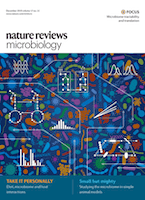
NATURE REVIEWS MICROBIOLOGY
Connecting Researchers with Essential Microbial InsightsNATURE REVIEWS MICROBIOLOGY, published by NATURE PORTFOLIO, stands as a leading journal in the field of microbiology, distinguished by its Q1 ranking in multiple categories, including Immunology, Infectious Diseases, and Microbiology for 2023. With an impressive niche impact factor, this journal serves as a vital resource for researchers, professionals, and students seeking comprehensive and cutting-edge reviews on various aspects of microbiology and immunology. Operating from the United Kingdom, the journal covers a wide range of topics reflecting the rapid advancements in the field, while maintaining rigorous editorial standards. Although it does not offer open access, the journal’s articles are essential for anyone aiming to stay at the forefront of microbial research and infectious disease studies. Established in 2003, it continues to thrive as a premier source of knowledge, offering critical insights into ongoing microbial challenges and innovations in research, thereby contributing significantly to our understanding of microbiological complexities.

mLife
Driving impactful discoveries in the diverse landscapes of microbiology.Welcome to mLife, an emerging journal at the forefront of microbiological research published by the esteemed WILEY in China. With its ISSN 2097-1699 and E-ISSN 2770-100X, mLife serves as a vital platform for scholars and practitioners aiming to advance their understanding of microbial sciences. With an impressive Q2 ranking in the Microbiology category and a Scopus rank of 143 out of 182, mLife is quickly establishing itself as a valuable source of cutting-edge research. The journal, covering a range of innovative topics from immunology to environmental microbiology, provides an engaging venue for disseminating high-quality research findings aimed at addressing real-world challenges. Authors and readers alike benefit from its accessibility features that encourage scholarly collaboration and information sharing. As we converge on the rich microbial landscapes from 2022 to 2024, mLife is committed to fostering a community dedicated to rigorous research and impactful discoveries.
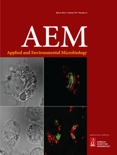
APPLIED AND ENVIRONMENTAL MICROBIOLOGY
Driving Impactful Discoveries in Applied MicrobiologyApplied and Environmental Microbiology, published by the American Society for Microbiology, stands as a leading journal in the fields of applied microbiology and environmental science since its inception in 1976. With a prestigious Q1 quartile ranking across multiple categories including Applied Microbiology and Biotechnology, Ecology, and Food Science, this journal consistently disseminates high-impact research that drives innovation and advances our understanding of microbial interactions within our ecosystems and industries. As ranked by Scopus, it exhibits prominent rankings in various related fields, underscoring its critical role in shaping contemporary microbiological research. Researchers, professionals, and students alike can stay abreast of groundbreaking studies while contributing to a vast body of knowledge that spans diverse aspects of microbiology, biotechnology, and ecology, ultimately contributing to sustainable practices. Join the community of dedicated scholars and explore vital research findings that impact both environmental health and technological advancement.
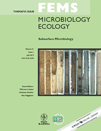
FEMS MICROBIOLOGY ECOLOGY
Pioneering Research at the Intersection of Microbiology and EcologyFEMS Microbiology Ecology is a prestigious journal published by Oxford University Press, specializing in the dynamic field of microbiology and its ecological implications. With an impressive impact factor and consistently ranked in the top quartiles (Q1) across multiple categories—including Applied Microbiology and Biotechnology, Ecology, and Microbiology—this journal serves as an essential resource for researchers and professionals aiming to advance their understanding of microbial interactions within ecosystems. Established in 1990 and spanning to 2024, FEMS Microbiology Ecology delivers cutting-edge research, reviews, and insightful discussions that illuminate the complex roles microorganisms play in environmental health and sustainability. Located in the United Kingdom, this journal provides a global platform for discourse, making significant contributions to both theoretical frameworks and practical applications in the biotech and environmental science sectors. Researchers and students alike will find a wealth of information that not only enriches their knowledge but also inspires innovative solutions for ecological challenges.
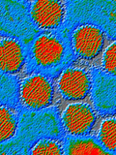
Annual Review of Microbiology
Synthesis of Knowledge: Your Gateway to Microbial DiscoveriesAnnual Review of Microbiology is a preeminent academic journal published by Annual Reviews, specializing in the dynamic field of microbiology. With a rich history dating back to 1948, this journal has become a vital resource for researchers, professionals, and students alike, providing comprehensive reviews that synthesize the latest advancements and trends in microbiological research. The journal is renowned for its impressive reputation, holding a Q1 ranking in both Medicine (miscellaneous) and Microbiology, and achieving an outstanding Scopus rank of #12 out of 182 in the field, placing it in the 93rd percentile. Although it does not offer open access, the Annual Review of Microbiology remains integral to advancing knowledge and understanding of microbial science, helping to bridge the gap between fundamental research and practical applications in health, industry, and environmental sustainability. Its meticulously curated content serves as a crucial platform for fostering innovation and collaboration among the global research community.

MICROBIOLOGY
Pioneering Research in Environmental and Clinical MicrobiologyMICROBIOLOGY (ISSN: 0026-2617, E-ISSN: 1608-3237), published by MAIK NAUKA/INTERPERIODICA/SPRINGER, is a pivotal journal in the field of microbiological research, operating from the vibrant hub of New York, United States. With a focus on the intricate relationships and functionalities of microorganisms, MICROBIOLOGY serves as an essential resource for professionals and researchers dedicated to advancing the knowledge of applied microbiology and biotechnology. As of 2023, it holds a competitive Q3 and Q4 category ranking in Applied Microbiology and Biotechnology and Microbiology, respectively, reflecting its commitment to high-quality and impactful research. Although currently not open access, the journal extends comprehensive insights into critical topics that span environmental microbiology, clinical applications, and biotechnology advancements, making it a vital platform for disseminating innovative findings in this ever-evolving discipline. Researchers and students alike will find MICROBIOLOGY to be an invaluable addition to their academic and professional repertoire.
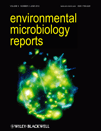
Environmental Microbiology Reports
Pioneering Research at the Intersection of Microbiology and EnvironmentEnvironmental Microbiology Reports, published by WILEY, is a prestigious journal dedicated to the field of environmental microbiology, exploring the intricate interactions between microorganisms and their environments. With an ISSN of 1758-2229, this journal has established itself as a crucial resource for researchers, professionals, and students interested in the latest advancements and applications in microbial ecology, soil science, and environmental sustainability. Since its inception in 2009, the journal has grown in impact and reputation, proudly ranked in the Q1 category for both Agricultural and Biological Sciences and Ecology, Evolution, Behavior and Systematics as of 2023. Notably, it occupies the 17th position out of 193 in its subcategory based on Scopus rankings, showcasing its significance within the field. Although it does not currently offer open access options, the high-quality research published in this journal continues to contribute significantly to the understanding of microbial roles in environmental processes, emphasizing the vital role of microbes in maintaining ecosystem health and promoting sustainable practices.